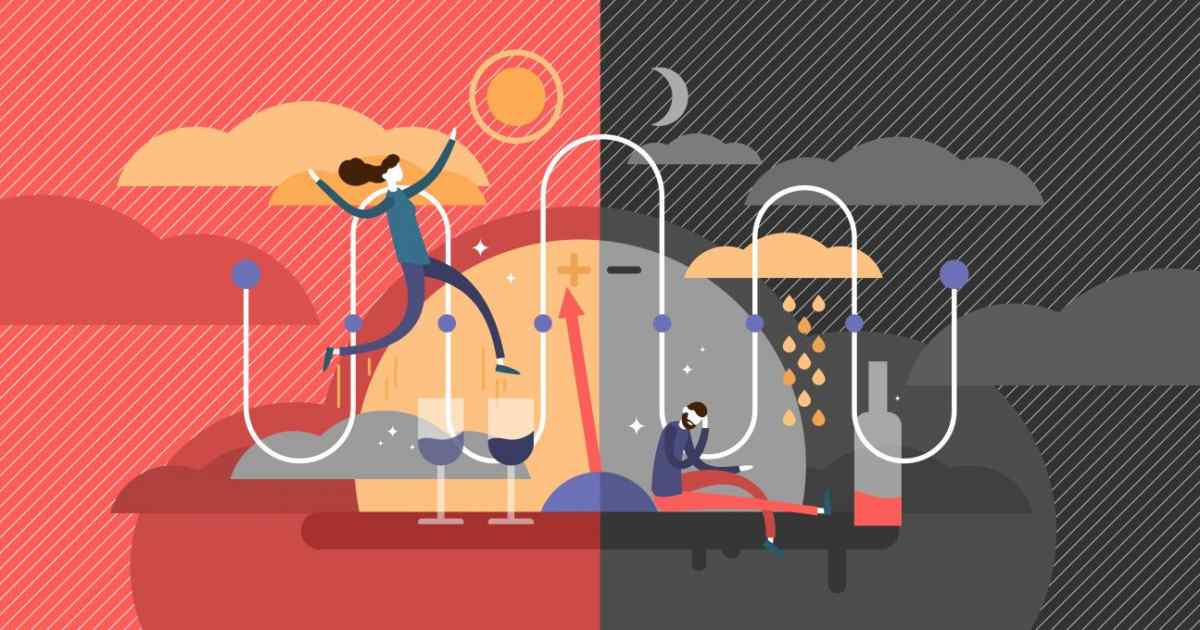Bipolar disorder is a mental illness that’s characterized by excessive shifts in mood. Start a search online to learn whether your mood swings may be an indicator of bipolar disorder, and seek help right away if you are concerned.
Unlike regular mood swings, which are typically caused by hormones or substance use, those that characterize various types of bipolar disorder are extreme, swinging between a high energy manic phase and a low, hopeless, exhausted depressive phase.
1. Inability to Complete Tasks
The inability to complete tasks is a good indicator to watch out for because it’s likely an issue in both the manic and depressive phases.
When people are in a period of mania, they’re full of energy but are often unable to direct their boundless energy in a useful direction. They have a hard time settling down and getting work done. They may make grand plans and forget them immediately. Mania is also characterized by an attitude of overconfidence and restlessness, which leads to impulsive choices that may seem completely out of character.
In the depressive phase, it’s often difficult for people with bipolar disorder to complete tasks because they feel so down and exhausted. They may also suffer from memory lapses and have issues concentrating and making decisions. All of this results in grand plans being made, but nothing getting accomplished. This is a common symptom that can be an issue for someone in both the manic and depressive phase.
2. Mixed Mania
Another common symptom of bipolar disorder manifesting is an episode of mixed mania. This is when a person exhibits signs of both mania and depression at the same time. It’s exhausting and frightening to experience, so if you feel that you, or a friend, are experiencing this symptom, seek help right away.
According to a study done by the University of Siena in Italy, approximately 40 percent of people with bipolar disorder experience an episode of mixed mania in their lifetime. Mixed mania manifests as a manic or depressive mood state that also carries distinct symptoms of the opposite mood. For example, a person who is completely withdrawn from loved ones and has lost interest in hobbies and activities but is simultaneously feeling restless and impulsive.
Mixed mania is a difficult symptom to identify. People who experience this symptom are challenging to treat and may have less success with medication than their peers who do not experience episodes of mixed mania.
3. Cognitive Impairment
According to the Center for Disease Control and Prevention, cognitive impairment is when a “person has trouble remembering, learning new things, concentrating, or making decisions that affect their everyday life.” It ranges from mild to severe and is a hallmark of diseases like Alzheimer’s and dementia.
Bipolar disorder also affects a person’s cognitive capabilities, and there are several different symptoms of this disorder that can be categorized together under cognitive impairment. For people with bipolar disorder, brief memory lapses and periods of forgetfulness are common symptoms of a manic or depressive episode, but they can also persist into the remission period.
It’s estimated that between 40 percent and 60 percent of patients with bipolar disorder experience some form of cognitive impairment during their lifetime.
4. Psychosis
70 percent of people with bipolar disorder will suffer some kind of psychosis during one of their manic phases.
Psychosis, which is defined as anything that you see, hear, or believe that isn’t based in reality, typically manifests as hallucinations or delusions. Often, people who experience episodes of psychosis while they’re in a manic state are diagnosed with schizophrenia, but this isn’t necessarily correct. People with bipolar disorder only have psychosis when they’re in a manic or depressive phase — never when they’re in remission.
It’s important to remember that psychosis is a symptom, not an illness. There are medications that can help treat this symptom. If you’re experiencing it as part of a manic phase, it will go away.
5. Changes in Behavior
Many people with bipolar disorder experience different changes in their behavior, depending on whether they’re entering or leaving a manic or depressive phase. Mania tends to make people aggressive, happy, excitable, impulsive, or overconfident and can turn even the mildest, shy person into a reckless risk-taker.
People who are entering a depressive phase may lose their naturally effusive nature, becoming sad, hopeless, and exhausted for reasons that don’t seem connected to reality. People who are normally heavy sleepers and regular eaters may find that they’re unable to do either when they’re in a manic or depressive phase.
Treatment Options
If you’ve been experiencing some of these symptoms, it’s a good idea to consult a doctor or mental health professional. They will be able to help you rule out any other physical or mental conditions that could be triggering these symptoms and will be able to refer you to a psychiatrist with experience in bipolar disorders.
Once you’ve received a formal diagnosis, there are several treatment options:
Medications
Depending on your diagnosis, you may be given medication to help manage your symptoms. Your psychiatrist can only treat symptoms that they are aware of, so it’s important to be honest with them. Some people keep a journal to track their mood and symptoms.
Some of the most common medications used in conjunction with bipolar disorder include mood stabilizers, antidepressants, and antipsychotics.
Psychotherapy
The combination of medication and psychotherapy, often called “talk therapy”, has been shown to be extremely effective in managing symptoms of bipolar disorder. There are a number of different types of therapies available for people with bipolar disorder, including cognitive behavioral therapy (CBT), which helps to change your patterns of thinking and behavior.
During a CBT session, you’ll work with your therapist to help identify trends in your behavior and develop new techniques for changing these patterns. You may also be advised to attend counseling sessions with your family, so they can learn how to support you more effectively.
